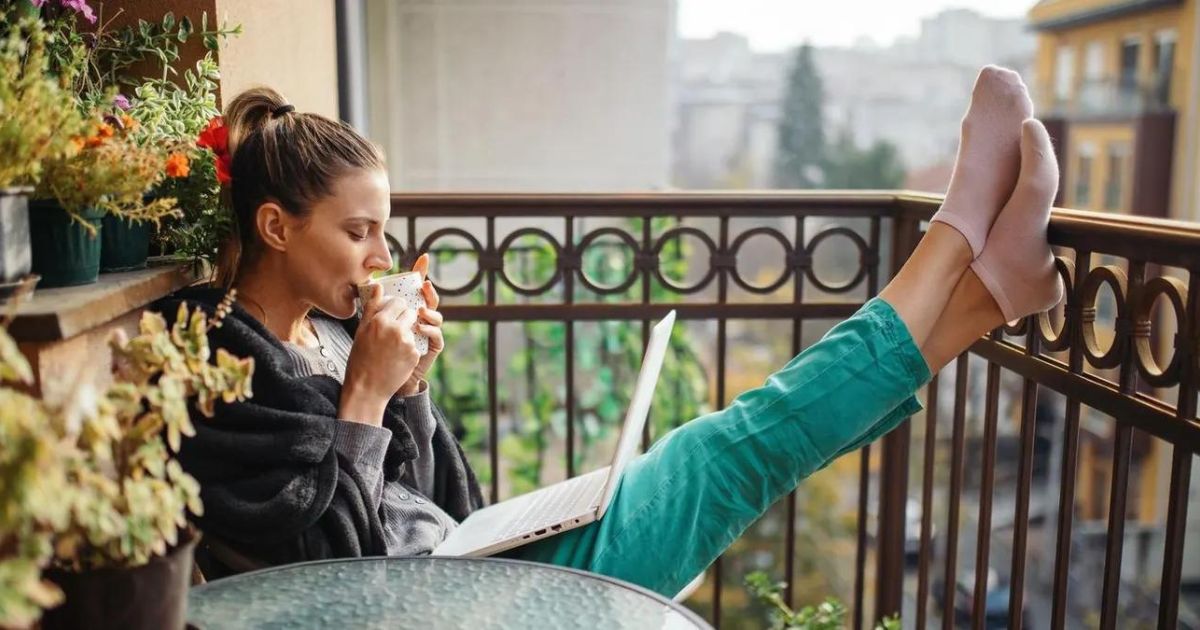In a world where hustle culture pervades our lives, leaving us grappling with the infamous “Sunday scaries” and “Monday blues,” striking a balance between work, and personal life, minimalist Mondays come as rescue.
The unrelenting pressure to perform consistently at our peak can lead to exhaustion, fatigue, and overwhelming stress.
A recent article by LinkedIn and Headspace underscores the magnitude of this issue, revealing that nearly 75% of employed Americans experience anxiety about the impending workweek on Sundays.
This alarming statistic highlights a pressing need for solutions that can transform this anxiety and stress into healthier and more productive habits.
Moreover, a 2021 YouGov poll, encompassing the perspectives of 4,000 respondents, exposed the widespread sentiment of disliking Mondays, with a staggering 58% expressing their aversion to the start of the workweek.
This significant portion of the population yearns for a remedy, and the workplace trend known as “Minimalist Mondays” is emerging as a potential antidote to the pervasive strain of hustle culture.
Hustle culture, characterized by the constant pursuit of productivity, has infiltrated our daily lives. It perpetuates the notion that success requires relentless effort, often at the expense of our well-being.
In this hyper-competitive environment, individuals find themselves caught in a ceaseless cycle of overwork, leading to burnout and emotional fatigue.
The “Sunday scaries” have become an all too familiar phenomenon. As the weekend draws to a close, anxiety about the upcoming workweek sets in, casting a shadow over the precious hours of relaxation.
The dread of returning to the demands of the workplace can erode the joy of Sundays, leaving individuals mentally and emotionally drained.
And then, there are the “Monday blues.” The transition from the freedom of the weekend to the rigidity of the workweek can be jarring, leading to a sense of discontent and unease as the new week begins.
This emotional rollercoaster often saps motivation and hinders productivity.
The Need For A Paradigm Shift Toward Minimalist Mondays
Amidst the exhaustion brought about by hustle culture, a glimmer of hope emerges in the form of “Minimalist Mondays.” This workplace trend advocates for a more balanced and compassionate approach to the start of the workweek.
It encourages individuals to embrace simplicity and prioritize self-care on Mondays, challenging the conventional notion that success hinges solely on excessive work.
The alarming statistics from the LinkedIn and Headspace report, where three-quarters of employed Americans experience Sunday anxiety, highlight the urgency of addressing the negative impact of hustle culture on mental well-being.
The constant pressure to perform at peak levels can have dire consequences, and it’s high time we explore alternatives that promote a healthier work-life dynamic.
“Bare minimum Monday” offers a refreshing departure from the norm. Instead of diving headfirst into an overwhelming workload, individuals are encouraged to start their week with manageable tasks and a focus on self-care.
By setting realistic expectations for the day, this approach seeks to alleviate the anxiety and stress often associated with Mondays.
One of the key tenets of “bare minimum Monday” is recognizing the value of self-care. Prioritizing activities that rejuvenate the mind and body, such as meditation, exercise, or simply taking a leisurely walk, can set a positive tone for the week ahead.
This deliberate shift towards self-compassion and well-being can help individuals navigate the challenges of the workweek with greater resilience.
The emergence of “bare minimum Monday” signifies a growing awareness of the need for change within the workplace. It challenges the traditional mindset that equates success with ceaseless toil and advocates for a more balanced and sustainable approach to work.
While the “Monday blues” have long been accepted as an inevitable part of our work lives, “bare minimum Monday” encourages us to reclaim the start of the week as a time for rejuvenation and renewal.
It underscores the importance of setting boundaries and prioritizing self-care to combat the pervasive strain of hustle culture.
As the allure of “bare minimum Monday” gains momentum, individuals and organizations alike are beginning to recognize the benefits of this approach. It fosters a healthier work environment, reduces stress and burnout, and ultimately enhances productivity by encouraging a more sustainable work-life balance.
In an era where hustle culture continues to exert its influence, “bare minimum Monday” offers a counterbalance, reminding us that success is not solely measured by our work output.
It invites us to approach the workweek with greater compassion for ourselves and others, recognizing that true success encompasses not only professional achievements but also personal well-being and happiness.
In conclusion, the advent of “bare minimum Monday” represents a pivotal shift in our approach to work and well-being.
It challenges the damaging effects of hustle culture and calls for a more balanced, compassionate, and sustainable way of navigating the workweek.
As individuals and organizations increasingly embrace this paradigm shift, we can look forward to a future where Mondays become a source of renewal and inspiration, rather than anxiety and dread.




























